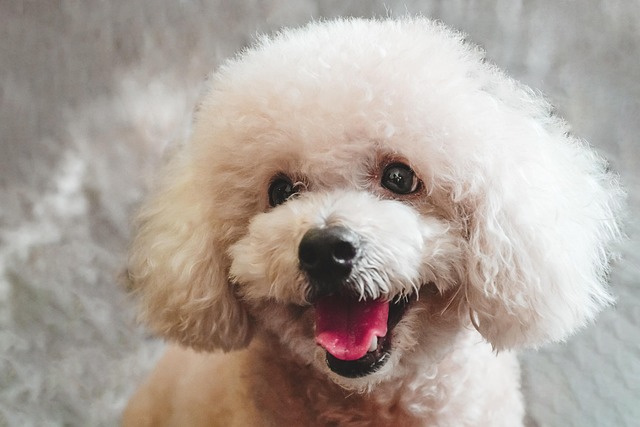
How do i train my dog to be obedient?
Watching your dog dart across the park ignoring your calls isn’t just frustrating—it can put them at risk near busy streets or public spaces.
Owning a lively and cute poodle undoubtedly adds countless joys to life. Watching their agile figures, many owners hope to train them to master the super cool skill of catching a frisbee. Although poodles are small in size, with their intelligent minds and quick reactions, they are fully capable of learning this skill. However, the training process requires us to invest sufficient patience, love, and professional methods.
Before starting the formal training, it is necessary to make the poodle familiar with the frisbee first. Place the frisbee in front of it, let it smell and lick, and introduce this "new friend" to it in a gentle tone. When it shows curiosity about the frisbee, reward it with small snacks, such as delicious chicken nuggets or cheese slices. After repeating this several times, the poodle will gradually develop a favorable impression of the frisbee.
Next, conduct frisbee guidance training. Gently shake the frisbee with your hand to attract the poodle's attention, and then move the frisbee slowly in front of it to guide it to run following the frisbee's track. During this process, continuously give encouragement and praise, such as "Baby, you're great. Keep up with the frisbee." When the poodle can smoothly follow the frisbee's movement, we can appropriately increase the speed and distance of the frisbee's movement to further stimulate its chasing desire.

When the poodle's enthusiasm for chasing the frisbee is fully aroused, we can start the frisbee - throwing training. At the beginning, don't throw the frisbee too far or too high, keeping it within the range that the poodle can easily reach. While throwing the frisbee, shout out the command loudly, such as "Go catch it". By instinct, the poodle will quickly run to chase the frisbee. If it successfully catches the frisbee, immediately give the warmest praise and generous rewards, such as giving it a big hug and then rewarding it with its favorite snacks. This will make it deeply remember that successfully catching the frisbee is a wonderful thing and will receive the full love of the owner.
During the training process, there may be situations where the poodle is reluctant to catch the frisbee or gives up halfway. At this time, never be impatient or scold it. Maybe it's tired and needs a rest; perhaps the flight trajectory of the frisbee is not suitable, making it difficult for the poodle to catch. We need to observe carefully and find out the reasons. If it's tired, pause the training, let it drink some water and take a short rest; if it's a problem with the frisbee, adjust the way of throwing the frisbee to ensure that the flight path of the frisbee is easier for the poodle to track.
As the training progresses, the difficulty can be gradually increased. For example, try different throwing angles and heights of the frisbee to let the poodle learn to accurately judge the landing point of the frisbee in the air. Training can also be carried out in different venues, such as grasslands, parks, etc., to let it adapt to various environments. At the same time, continuously strengthen its reaction speed to the command, so that it can quickly respond as soon as it hears the command "Go catch it".
The process of training a poodle to catch a frisbee is a journey full of joy and challenges. During this process, the bond between us and the poodle will become even deeper. Every successful frisbee catch embodies our efforts and its dedication. Let us accompany the poodle to grow with love and patience, and witness them shine in the frisbee game. Because they are not only our pets but also indispensable family members in our lives, and their happiness is our greatest joy.

Watching your dog dart across the park ignoring your calls isn’t just frustrating—it can put them at risk near busy streets or public spaces.

New puppy owners often find themselves rushing to clean up accidents before they set in, and that’s where puppy pad training becomes a game-changer.

If you've noticed your dog's waistline disappearing and your veterinarian has mentioned those few extra pounds, your first instinct might be to simply reduce the amount of food in their bowl.

Training a dog to use a designated spot indoors isn’t as daunting as many new owners fear, but it does take consistency and an understanding of your pet’s needs.

That moment of dread on a walk is all too familiar for many new dog owners. You see another dog approaching down the sidewalk of your neighborhood

If the sight of another dog on your neighborhood walk makes your heart sink as your own dog erupts into a frenzy of barking and lunging, you're not alone.